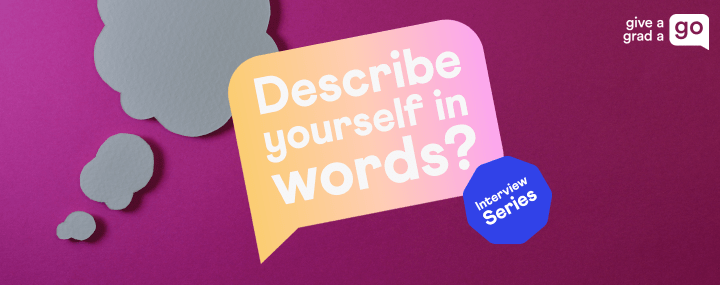1. Ensure you are in a quiet space
Before answering the call, try to ensure you walk into a quiet room, with good phone signal, there’s nothing worse than loud, unprofessional background noise.
Ensure the TV and music is off, housemates or family members are out of the room and you are in an area where you feel confident to give your best phone voice and answer the employer’s questions to the best of your ability.
2. Answer the call in a professional manner
Starting the call in a professional manner, will not only help to give a good first impression to the employer, but it will also help to ensure that you stay confident throughout the phone interview. Here are a few ideas for how you might like to answer the call:
- “Good morning, [insert name] speaking”
- “Hi there, it’s [name] speaking, how can I help?”
- “Hello this is [name’s] phone, is that [employer name] there?”
- “Good afternoon [employer name], how are you?”
3. Personalise your voicemail
It is a good idea to personalise your voicemail, just in case you happen to miss a call (although we would recommend you have your phone on loud and with you at all times when applying for jobs).
This is your chance to create a good impression from the start; try out a few voices and recordings to see which makes you sound the chirpiest, most enthusiastic and generally confident. Include your email address too, if you know you won’t have access to your phone during the typical 9-5.
Make sure you keep your voicemail greeting professional.
Never ever think it’s a good idea to unleash your comedy genius on your answerphone.
You are funny and all your acquaintances will agree, because they know you.
Recruiters and employers don’t, so it’s better to shine at the interview stage, when you can crack a joke or two then. Not prior to the phone interview, because – let’s face it – it might stop you from making it through the hoops.
4. Follow call back etiquette
If you know you are going to be busy during the day, make sure you specify this on your voicemail.
However, if you are able to return the call, you should do so on the same day; most recruiters don’t have time to waste calling graduates incessantly.
Additionally, it’s bad manners to not return a call, even if you aren’t interested at that particular time (you never know if you might be in the future).
When you do call back, try and make sure you’re in a quiet spot to best make the call as noisy streets/offices never make for good conversation starters.
5. Back up your answers
Although the phone call might catch you off guard, it’s easy to prepare a few basics to pull out of the bag, when the time comes.
Many recruitment consultants agree that appropriate language is key to getting their approval.
“There’s a fine line between being a bit informal and just putting employers off with language,” claims one recruitment consultant, “some people can pull it off but it does also depend on the industry you plan on working in”.
Media and social roles will require a bit more overtness than, say, finance, but don’t lose sight of the goal – impressing whoever you are speaking to.
Similarly, make sure you use keywords and sound engaged on the phone, which will make all the difference.
You can also prepare a few answers, such as what you’ve been up to to date, what sort of role you were after and what salary would best suit you.
6. Keep track of what jobs you’ve applied for
There is nothing worse than forgetting what you’ve applied for, and more importantly, where these vacancies were.
Keep a record of which roles you’ve applied for, with which company and/or recruitment agency, just to have a log of ready information to refresh your memory if – or rather when – you get a call back.
Listen carefully and, if necessary, feign poor signal to get your caller to repeat themselves in case you missed out on certain bits of the conversation. This could be your make or break opportunity.







